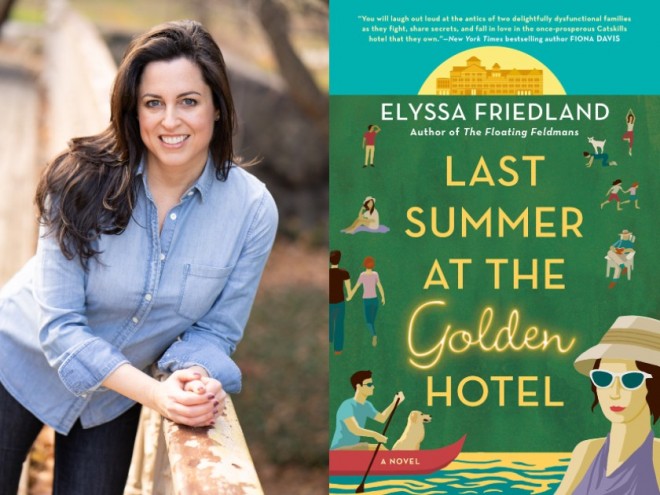In his collection, The Lamps of History, Michael Sandler places narrative poems illustrating moments from WWII and the Holocaust next to lyric poems revolving around suffering, doubt, and hope. Throughout all four sections of his book, Sandler intersperses ekphrastic poems, which he labels “Stills” and which in the notes section he mentions are “based on photographs by Roman Vishniac documenting Jewish life in Eastern Europe between 1935 and 1938.” The ekphrastic poems are the most image-driven poems in the collection and continually bring the reader back to European ghettos and concentration camps, despite the surrounding poems sometimes having little to do with the Holocaust. The ekphrastic poems end up informing the way that the reader interprets the other poems; they evoke a meditative yearning for peace amidst human suffering.
The collection begins and ends with realizations about the nearness of death. In the first poem, “Gauze,” Sandler begins, “A light shaft cleaves my gurney from the room / and its rood-tree of IV bags, tubes…” In the last poem of the collection (“After Certitude”), Sandler brings readers back to this moment of near death: “I’ve set out for the afterlife, / but I’ve lost my way…Once, I had courage to be hopeful, / to expect a beacon not far ahead.” Sandler reminds readers of the preciousness of life while bookending the collection with these images of near-death, and scattering Holocaust images in the ekphrastic poems throughout, as a reminder that uncertainty lies ahead.
In addition to the ekphrastic poems, another one of Sandler’s most powerful poems is “Ghazal to an AR-15,” which hauntingly references Sandy Hook and other mass shootings while treating the gun like a sacred part of the body of its owner. This poem, placed toward the end of the book and next to one of the Holocaust ekphrastic “Stills,” feels like a strong comment on the dangers of what can happen to a society more concerned with violence and hate than loving one’s neighbor and children, ideas that echo throughout the collection.
Sandler references many Jewish cultural images and moments in his poems, from discussing each ingredient in kugel to imagining what really happened to his family in czarist Russia to visiting Israel’s Tomb of the Patriarchs. In the poem, “Knock,” Sandler writes that “the Lord is watching over our thresholds” and contemplates the commandment of welcoming the stranger while also safeguarding his own home with sleeping children inside: “I half-pity his drenched features, fathoming / we’re not neighbors, just creatures who believe / doors are meant to pivot, fellows to commune…”
Sandler writes about his own family’s rags-to-riches story through references to his rag-dealing grandfather who “trudged each winter / in a threadbare coat” in the poem “Scrap Merchants.” Readers find out in the poem “Autonomous Son” that the speaker is named after this rag-dealing grandfather. The speaker’s father, who encouraged his son to join him as a lawyer, has a work ethic that Sandler admires. The poem “Betelgeuse and Rigel” highlights descriptions of the speaker’s father’s work desk and how the “universe of paperwork” and “crystal ball with stars of glittered gas” are actually just bills and bad debts. Still, it is clear the speaker of these poems looks up to his father and hopes to be a guide for his own children.
Jamie Wendt is the author of the poetry collection Laughing in Yiddish (Broadstone Books, 2025), which was a finalist for the 2022 Philip Levine Prize in Poetry. Her first book, Fruit of the Earth (Main Street Rag, 2018), won the 2019 National Federation of Press Women Book Award in Poetry. Her poems and essays have been published in various literary journals and anthologies, including Feminine Rising, Catamaran, Lilith, Jet Fuel Review, the Forward, Minyan Magazine, and others. She contributes book reviews to the Jewish Book Council. She won third prize in the 2024 Reuben Rose Poetry Competition and won second prize for the 2024 Holloway Free Verse Award through the Illinois State Poetry Society. Wendt holds an MFA in Creative Writing from the University of Nebraska Omaha. She lives in Chicago with her husband and two kids. Follow her online at https://jamie-wendt.com/ or on Instagram @jamiewendtpoet.





